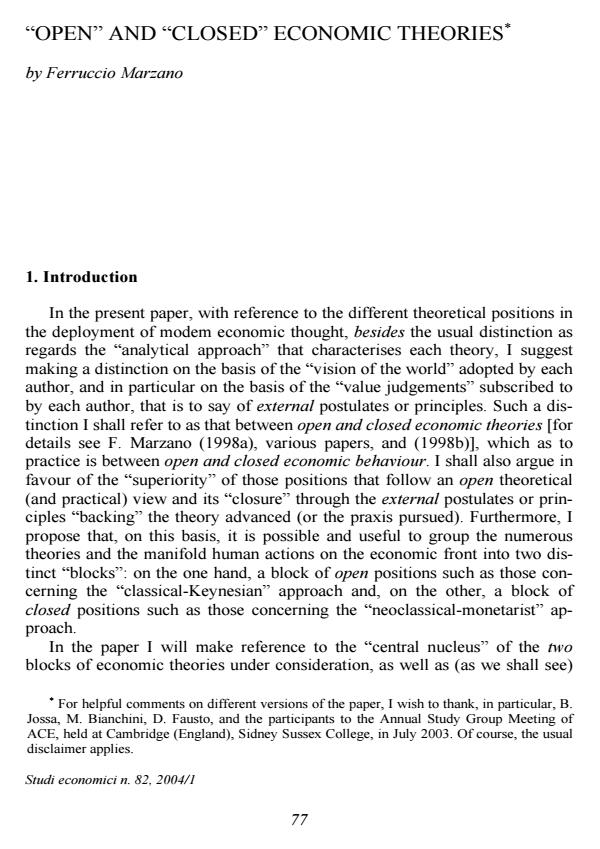Open and closed economic theories
Titolo Rivista STUDI ECONOMICI
Autori/Curatori Ferruccio Marzano
Anno di pubblicazione 1 Fascicolo 2004/82
Lingua Inglese Numero pagine 22 P. Dimensione file 105 KB
DOI
Il DOI è il codice a barre della proprietà intellettuale: per saperne di più
clicca qui
Qui sotto puoi vedere in anteprima la prima pagina di questo articolo.
Se questo articolo ti interessa, lo puoi acquistare (e scaricare in formato pdf) seguendo le facili indicazioni per acquistare il download credit. Acquista Download Credits per scaricare questo Articolo in formato PDF

FrancoAngeli è membro della Publishers International Linking Association, Inc (PILA), associazione indipendente e non profit per facilitare (attraverso i servizi tecnologici implementati da CrossRef.org) l’accesso degli studiosi ai contenuti digitali nelle pubblicazioni professionali e scientifiche.
Open and Closed Economic Theories (by Ferruccio Marzano) - ABSTRACT: This paper proposes a new way to look at the deployment of modern economic theories, since A. Smith, as well as of actual practice as far as economic actions are concerned. On the one hand, there are those theories and actions which may be regarded as open, that is to say that they are incomplete and need to be completed on the basis of the value judgements subscribed to by each author, that are to be taken as external postulates or principles. On the other hand, there are those theories and actions which may be regarded as closed, that is to say that they are thought of as complete in themselves, so that, once certain value judgements are subscribed to by any author, there may well be the case of a clash between conclusions derived at from a reasoning which is internal to any theory and action and those conclusions that are derived at from external postulates or principles. Moreover, since any of the two groups of economic theories and actions may be combined with any of two groups of ethical postulates or principles, such as subjective vs. objective moral values, it follows that an option may be made among four different possibilities. Finally, it will be argued for the superiority of the combination open economic theories (and practice) and objective moral values over any other of the three remaining options.
Ferruccio Marzano, Open and closed economic theories in "STUDI ECONOMICI " 82/2004, pp , DOI: